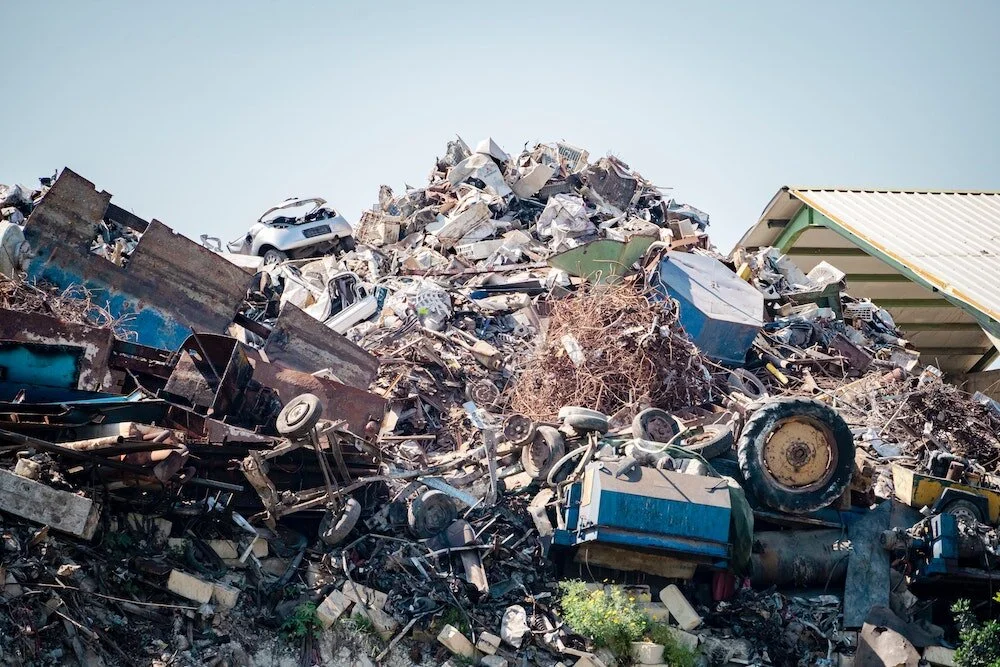The UK has a huge fly-tipping problem. According to the UK Government, local authorities dealt with just under 1 million fly-tipping incidents in 2019/20 - a 2% rise compared to the year before. Out of the incidents reported, the most common size category for fly-tipping incidents was equivalent to a ‘small van load’. That’s a lot of illegally dumped waste.
When dumped in public spaces, the cost of removing fly-tipping comes out of the taxpayer’s pocket. In fact, in 2019-20 it cost £10.9 million to clear the rubbish left behind from large fly-tipping incidents.
However, the government will only remove waste that is illegally dumped on public land. Meaning that if you are a private property owner, any waste dumped on your land is your responsibility and expense to clear.
It is the Landowner’s Responsibility to Remove Fly-Tipped Waste on Their Property
On private property, the responsibility of waste removal is down to the vacant property owner – regardless of if the rubbish was dumped there illegally.
The Gov UK website states clearly: ‘It’s against the law to allow fly-tipping on your land as fly-tipped waste can harm human health or the environment.’
The guidance goes on to say that if you, the landlord, find waste dumped on your property illegally you must:
Report the incident to your local council or to the Environment Agency.
Arrange to have the fly-tipped waste safely removed.
Pay for the removal and disposal.
If you, the vacant property owner, do not take appropriate action to have the waste removed, you may face enforcement action from your local council or the Environment Agency.
Photo by Evan Demicoli on Unsplash
The Costs and Damage Associated with Fly Tipping
A vacant, fly-tipped property can quickly become a target for a host of other crimes and issues. From pests and contamination to theft and squatters, the costs and damages associated with the crime can quickly snowball.
Here are some associated costs you may need to consider:
Waste Removal - The most common category of size for fly-tipping in 2019/20 was a small van load. Roughly equivalent to a tip which, on average, costs £100 to remove.
Pests – With a large amount of unmanaged rubbish on-site, you’re highly likely to attract a pest infestation. Whether it is rodents or bugs, an infestation can rapidly spiral out of control and cause a huge amount of damage.
Property & Area Devaluation – Areas with a high amount of fly-tipped waste tend to see a decrease in property value due to the visual signifier of high crime rates. Paired with any damages caused by the waste or associated issues, it’s difficult to maintain the value of a fly-tipped vacant property.
Crime Attraction – Nothing says ‘this property is empty and unprotected’ like a fly-tip. This leaves vacant property owners at greater risk of crimes such as metal theft and squatting as criminals begin to notice that your vacant is empty.
Photo by Zachary Kadolph on Unsplash
How To Prevent Fly Tipping
Apart from being unsightly, fly-tipping has a negative effect on the environment, the community, and on the value of your property. So, we recommend that you take preventative action to protect your vacant property before it becomes the victim of fly-tipping.
The National Fly-Tipping Prevention Group suggest that keeping areas tidy can prevent fly-tipping. They also recommend removing any illegally dumped rubbish as soon as possible to prevent other fly-tippers from adding to the pile.
Photo by Frédéric Barriol on Unsplash
Gates, fences, and CCTV can all help to prevent illegal rubbish dumping – however, the best method of prevention is to secure an onsite presence to deter fly-tippers.
At Blue Door Property Guardians, we offer an effective guardian security service at zero cost to the vacant property owner. If you are not familiar with guardian facility management, the scheme is an innovative community-focused solution where professional guardians live on-site 24/7 in their capacity to protect your property. The guardians pay a small amount of rent to live in prime locations, and the landlord benefits from zero-cost around-the-clock security.
At Blue Door, our guardians make regular patrols to keep your property clean, tidy and well-maintained at all times. With the constant on-site presence and active involvement of property guardians, the risk of illegal dumping is dramatically reduced making your property far less likely to be targeted by fly-tippers and other vandals.
What Makes Property Guardianship Better than Traditional Security? A Case Study
From 2015-2017, Blue Door Property Guardians managed and protected a North London Business Centre, housing 32 security Guardians. During the 2 year period, the site was under our protection 24/7. Throughout this time the site was well maintained, protected, and secured against vandalism, crime, and fly-tipping.
In 2017, the site was sold to a Housing Association for the redevelopment of 400 homes. In line with our 30-day hand back guarantee, Blue Door returned the property.
Photo by Jasmin Sessler on Unsplash
Within two weeks the site was swamped with fly-tipped waste. It was a shocking incident with huge amounts of illegally dumped rubbish that took over a week to clear. In an interview with the Evening Standard, the Cabinet Member for the Environment at the time said: “This was one of the worst incidents we have seen in this council – an entire car park, covered in all kinds of business and household waste.”
The property owners paid for the entire clear-up mission and found themselves with a hefty bill for £50,000 in order to remove the waste. Something that we believe could have been avoided had the site stayed under property guardian protection.
If you’d like to find out how we could help protect your vacant property from fly-tippers, then get in touch today and a member of the team will be happy to answer any questions you may have.
Photo by Karina Carvalho on Unsplash






